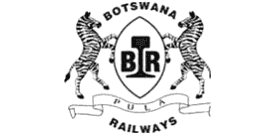 Botswana’s Rail Revolution: New Tracks to Travel Opportunities
Botswana’s Rail Revolution: New Tracks to Travel Opportunities
Botswana is embarking on a major railway infrastructure overhaul, promising exciting new prospects for African travel agents. This ambitious initiative, spearheaded by Transport and Infrastructure Minister Noah Salakae, aims to transform the country's ageing rail system into a modern, efficient network, boosting regional connectivity and unlocking new travel opportunities.
Speaking on Radio Botswana, Minister Salakae emphasized the government's commitment to developing a transformative transportation agenda. This includes major railway projects designed to position Botswana as a key logistics hub in Southern Africa, facilitating trade, regional cooperation, and economic growth.
One of the flagship projects is the Mmamabula–Lephalale Railway, linking Botswana’s coalfields with South Africa. This line is poised to become a vital trade artery, significantly reducing the cost of transporting goods to the port of Durban. The project is currently in the transaction advisory phase, with a preferred bidder expected to be selected by March 2026.
Further enhancing regional connectivity is the Trans-Kalahari Railway, a planned 1,500 km corridor connecting Botswana with the Namibian port of Walvis Bay. This strategic link will facilitate the import of essential goods like oil and support the export of key commodities such as beef. While the estimated cost of over \$10 billion presents a significant challenge, both governments are actively pursuing a Public-Private Partnership (PPP) model to secure funding and expedite implementation.
Another key initiative is the Mosetse–Kazungula–Livingstone Railway, a joint venture between Botswana and Zambia. This 430 km line will connect Mosetse (Botswana) to Livingstone (Zambia) via Kazungula, enhancing regional integration and trade. Despite initial concerns about financial viability, both governments have committed to completing the feasibility study, recognizing the project's long-term economic and tourism benefits.
Minister Salakae also highlighted the importance of the Limpopo Corridor, which runs through Zimbabwe to Mozambique. This alternative trade route offers a crucial bypass to the often-congested port of Durban, ensuring smoother and more reliable access to regional and international markets. Botswana, Zimbabwe, and Mozambique have already agreed to rehabilitate this corridor, further strengthening regional transport links.
These strategic investments in railway infrastructure hold immense potential for African travel agents. Improved connectivity, reduced transport costs, and enhanced access to key destinations will enable agents to curate more appealing and cost-effective travel packages. Whether it's a business trip to South Africa, a cultural exploration of Zambia, or a safari adventure in Botswana, these new rail links will open up exciting new possibilities for travel across the region.
The Botswana government’s commitment to railway development is not just about infrastructure; it's about building a more connected, prosperous, and integrated future for Southern Africa. By investing in efficient and sustainable transport solutions, the country is laying the tracks for long-term economic growth, regional cooperation, and enhanced travel opportunities for all.
The projected economic impact of these rail projects is substantial. The Trans-Kalahari Railway, for instance, is estimated to generate cost savings of \$1.35 billion annually, accumulating to over \$40.5 billion over its 30-year lifespan. The Mmamabula–Lephalale Railway, with a projected annual cost saving of \$180 million, is expected to deliver cumulative savings of \$5.4 billion over the same period. These figures underscore the significant economic benefits these projects are expected to bring to the region.
